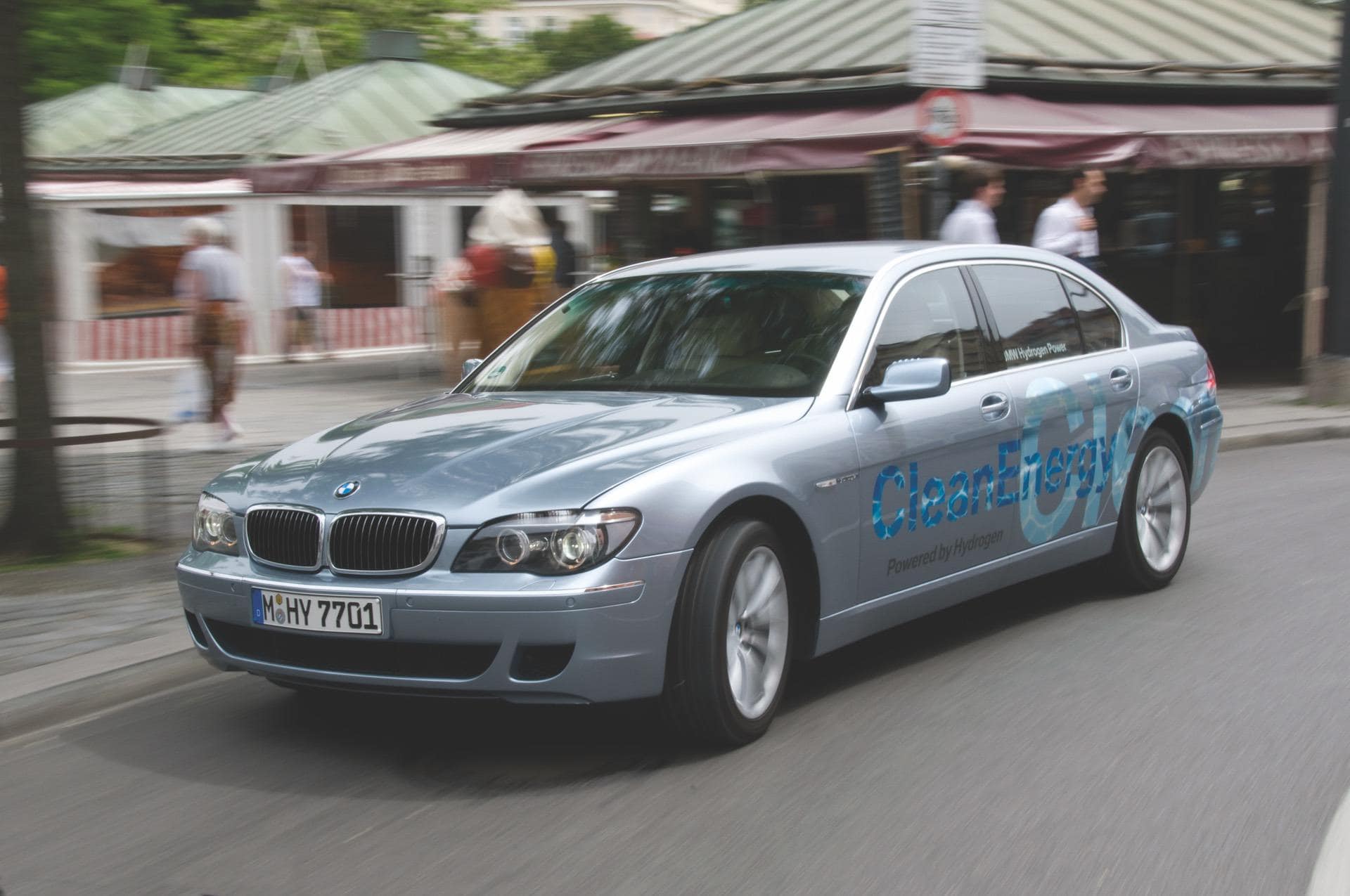BMW first experimented with a hydrogen car in the late 1970s by modifying an E12 5 Series Sedan. The better-known prototypes you might remember didn’t arrive until much later. If the E38 from 2000 doesn’t ring a bell, surely you have memories of seeing the E65 Hydrogen 7 from 2005. This pair of 7 Series sedans featured V12 engines that were able to run on gasoline and hydrogen.
Subsequent hydrogen efforts from BMW have focused on more conventional hydrogen prototypes with just a fuel cell. The iX5 doesn’t have a combustion engine, nor does it carry around a gasoline tank. In an interview with GoAuto, the company’s man in charge of the hydrogen program says the German luxury brand abandoned ICE hydrogen tech years ago.
Juergen Guldner explained the reasons behind the decision to work exclusively on fuel-cell hydrogen cars. It all comes down to efficiency since having a hydrogen tank instead of an identically sized gas tank enables a longer range. The General Program Manager for Hydrogen Technology for BMW Group said a hydrogen car would cover 500 kilometers (311 miles) between refills. An equivalent ICE car wouldn’t even travel for 300 kilometers (186 miles).
He mentioned the technology currently being tested by Toyota could work in certain scenarios. As a refresher, the Japanese company supplies BMW with the fuel cell for the iX5. Guldner said a hydrogen ICE would be better in trucks where there’s a bigger need for additional constant power. Because trucks are frequently driven at more constant speeds than passenger cars, efficiency is less impacted. The more an ICE engine runs at steady speeds, the better efficiency it returns.
Toyota is also testing hydrogen-burning combustion engines in race cars. It has modified the GR Yaris and GR Corolla so that their three-cylinder 1.6-liter turbocharged powertrains run on hydrogen. However, there are no plans for the time being to launch a production vehicle with this technology. That’s not surprising given the underdeveloped hydrogen refueling network.
Source: GoAuto






































































